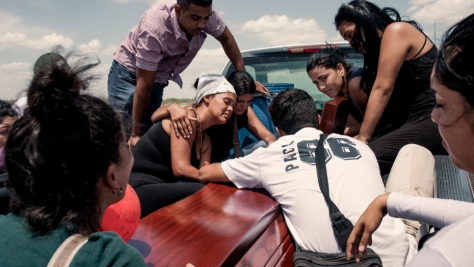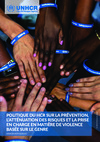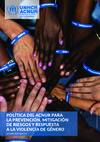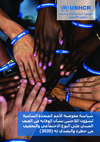UNHCR seeks $13 million to step up response to South-East Asia boat crisis
This is a summary of what was said by UNHCR spokesperson Melissa Fleming – to whom quoted text may be attributed – at today's press briefing at the Palais des Nations in Geneva.
UNHCR is seeking US$13 million to help with the needs of new boat arrivals in South-East Asia, where thousands of refugees and migrants have been crossing the Bay of Bengal and the Andaman Sea.
The appeal was launched yesterday, and is aimed at beefing up our work to do with protection for the nearly 4,800 people from Myanmar and Bangladesh who have been disembarked from smugglers' boats in the last month. In the latest incident, earlier this week, over 700 people were landed in Myanmar's Rakhine state. They included some 120 women and children who said they had been at sea for at least three months.
With the monsoon season imminent, it's estimated that thousands of people may still be at sea.
UNHCR's appeal follows from last Friday's regional meeting of affected States held in Bangkok. It also reflects elements of a 10-point plan of action proposed by UNHCR, the International Organization for Migration and the UN Office on Drugs and Crime.
The funds will allow UNHCR to step up its response in three main areas: Firstly by helping meet the international protection needs of new boat arrivals, secondly by enhancing information available to people considering the journey, and thirdly by targeting some of the root causes of these movements in source countries.
To date, UNHCR's teams have registered just over 1,000 Rohingya new arrivals in Indonesia. In southern Thailand we have distributed relief supplies and are counselling dozens of new arrivals, while in Malaysia we are scaling up to meet the needs of arrivals once consistent access is provided.
Additional resources are needed to set up mobile multi-functional teams to quickly identify and help people with specific protection needs. Refugees who cannot return home will need assurance that they can stay in host countries temporarily with access to legal work until conditions are conducive for voluntary return or until other solutions are found. Where possible, UNHCR will support livelihood programs within national structures to serve the needs of both refugees and host communities.
The appeal envisages trainings for the region's search-and-rescue officials on international legal principles and protection, and exploration of predictable disembarkation options. UNHCR will also expand its monitoring and reporting on maritime movements to include information campaigns providing factual information to potential travelers about the risks and mistreatment at the hands of smugglers and traffickers.
To reduce incentives for people to undertake these dangerous sea journeys, UNHCR will seek legal alternatives such as programs to transition from refugee to migrant status in host countries in need of temporary migrants.
A key part of the appeal focuses on mobilizing support for humanitarian, human rights and development needs in source countries to address the root causes of movement. UNHCR is ready to work with the governments to address issues of citizenship and documentation of people in Bangladesh and in Myanmar's Rakhine state.
To help resolve the three-year-long internal displacement in Rakhine state, UNHCR is seeking to expand assistance to and monitoring of displaced families who wish to return home or establish new homes.
For more information on this topic, please contact:
- In Bangkok, Vivian Tan on mobile +66 818 270 280
- In Geneva, Babar Baloch on mobile +41 79 557 9106
-

A final resting place for Venezuelans in Colombia
17 Mar 2021 -

UNHCR Policy on the Prevention of, Risk Mitigation and Response to Gender-based Violence, 2020 (PDF) - French
16 Mar 2021 This Policy consolidates the significant progress made by UNHCR and partners to prevent, mitigate and respond to Gender-based Violence. The policy covers all UNHCR Operations and all people of concern. It applies to all stages of the programme cycle, throughout the displacement continuum, in emergencies and protracted displacement settings, as well as in mixed flows and onward movements, and situations of statelessness. -

UNHCR Policy on the Prevention of, Risk Mitigation and Response to Gender-based Violence, 2020 (PDF) - Spanish
16 Mar 2021 This Policy consolidates the significant progress made by UNHCR and partners to prevent, mitigate and respond to Gender-based Violence. The policy covers all UNHCR Operations and all people of concern. It applies to all stages of the programme cycle, throughout the displacement continuum, in emergencies and protracted displacement settings, as well as in mixed flows and onward movements, and situations of statelessness. -

UNHCR Policy on the Prevention of, Risk Mitigation and Response to Gender-based Violence, 2020 (PDF) - Arabic
16 Mar 2021 This Policy consolidates the significant progress made by UNHCR and partners to prevent, mitigate and respond to Gender-based Violence. The policy covers all UNHCR Operations and all people of concern. It applies to all stages of the programme cycle, throughout the displacement continuum, in emergencies and protracted displacement settings, as well as in mixed flows and onward movements, and situations of statelessness. -

Aid agencies appeal for funding to support over 2 million South Sudanese refugees in dire need
16 Mar 2021 -

UNHCR - Maternal death review guidance and data collection form, 2020 (PDF)
15 Mar 2021 UNHCR is promoting the systematic review of maternal deaths to learn from those situations, improve the quality of safe motherhood programming and prevent future maternal and neonatal morbidity and mortality. Further, the reviews help to identify actions that prevent future shortcomings in access to quality essential maternal and neonatal health services. This form and the accompanying guide are used to systematically assess and document maternal deaths and develop action plans. -

Inside Syria, millions face destitution after a decade of pain
15 Mar 2021 Compounding crises increase misery for Syrian families trying to pick up the pieces after ten years of conflict, including 6.7 million people still displaced inside the country. -

A decade on, Syrian refugees mired in 'silent war' for survival
12 Mar 2021 As the Syria crisis reaches the 10-year mark, millions of refugees face unprecedented hardship due to rising poverty, lack of opportunity and the impact of COVID-19. -

A decade of death, destruction and displacement must not sap our solidarity with Syrians
12 Mar 2021 Statement attributable to Filippo Grandi, UN High Commissioner for Refugees
